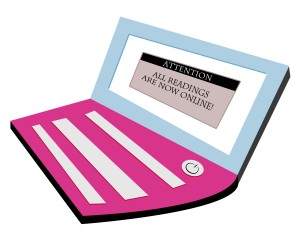Profs opt for online

Is there a backpack full of textbooks weighing you down? Some professors at Wilfrid Laurier University are looking to lighten their students’ loads by making course readings available online.
The ARES system allows professors to make reserve items available online through the library. This can include articles, books, websites and audio files.
“Overall the philosophy is to try and lower the cost for students,” said Alex Latta, an assistant professor in global studies at Laurier who has made course readings accessible online.
Taking a load off of the back of students and their wallets is not Latta’s only motivation. He pointed out that by posting class readings online, students need to retrieve all of the course material from a single source instead of referring to a variety of different sources, including books and online.
“The idea is to streamline a system where everyone gets their readings from the same place,” he said.
WLU history and medieval studies professor Alicia McKenzie also uses the ARES system and makes an effort to reduce the expenses of her students, even if they would prefer to read a hard copy.
“I have had students who have printed the materials and had it bound themselves. It’s still less expensive,” said McKenzie “It’s all about freedom of choice and reducing costs.”
Not only does this reduce costs for students, the growing availability of online resources has also provided students with access to rare and out-of-print materials that they could previously not obtain.
Professors like Michael Sibalis, who teaches history, have incorporated this into their lesson plans.
“I can assign the students a topic on 18th century books from another country and they are only available online,” said Sibalis.
While some prefer the easy access that accompanies online readings, other students may find it difficult to read online.
“I like online readings because they’re accessible. It’s always good to have a physical copy but you know, times are changing,” said first-year student Chase Filiatrault.
Fourth-year student, Carly Henkel, also prefers online readings, pointing out that forgetting your books at home may become a thing of the past.
“If you go somewhere and you forgot that course pack, you can go to an on-campus computer and still have access to that article,” said Henkel.
Despite these advantages, a world of increasingly paperless learning still has its problems. Latta is concerned that many students will not get the same quality of learning.
“Are students bringing their readings to class? Are they doing something equivalent to highlighting them?” asked Latta.
McKenzie added, “I think for first-year students it’s better to have a hard copy to take notes on and have with them at all times.”
As the university moves towards more paperless options for students, these issues will have to be addressed. For the most part, Sibalis believes the internet generation is already used to it.
“Most students I think are already used to reading online … I think the more stuff available online, the better,” he said.

